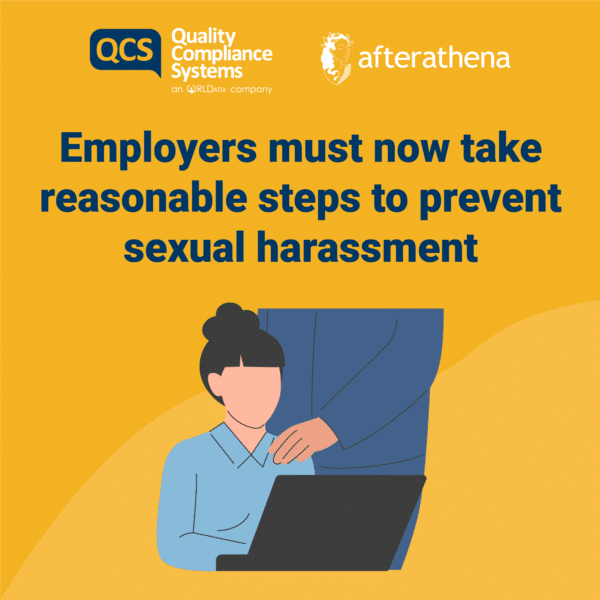On 26 October 2024, the Worker Protection (Amendment of Equality Act 2010) Act 2023 come into force, placing a legal obligation on all employers to take “reasonable steps” to prevent sexual harassment of workers, in the course of their employment.
This applies to sexual harassment as defined in the Equality Act 2010, which means unwanted conduct of a sexual nature, which has the purpose or effect of:
- Violating a worker’s dignity
- Creating an intimidating, hostile, degrading, humiliating or offensive environment for that worker
The preventative duty requires employers to take reasonable steps to prevent sexual harassment by their own workers and by third parties, such as clients and customers.
The Worker Protection (Amendment of Equality Act 2010) Act 2023 represents a pro-active shift, requiring employers to introduce measures to prevent harassment before it happens, rather than acting once incidents have occurred.
The recent Harrods scandal shows why this change was needed and its significance to employers of all sizes.
What are reasonable steps?
Whilst the Worker Protection (Amendment of Equality Act 2010) Act 2023 does not define what “reasonable steps” are, employers will need to have in place practical measures which are proportionate and bespoke to the business, including clear anti-harassment policies, accessible reporting mechanisms and harassment prevention training for all staff, including the most senior leadership.
Ultimately, this will be down to the employer to decide what steps they take and how far they go to ensure compliance with the new duty, after conducting a risk assessment.
However, to support employers, the Equality and Human Rights Commission (EHRC) has issued updated guidance on the subject, which can be found here. The guidance includes practical examples of what may or may not be considered a “reasonable step” and factors to consider when conducting a risk assessment.
The consequences of failing to take reasonable steps?
If an employer fails to take reasonable steps to prevent sexual harassment, the EHRC has enforcement powers, such as:
- Conducting investigations
- Issuing unlawful act notices which require the employer to prepare an action plan on how it will remedy any breaches
- Entering into legally binding agreements with employers to prevent future unlawful acts
- Asking the court for an injunction to restrain an employer from committing an unlawful act
In addition, if a worker succeeds in a claim for sexual harassment and is awarded compensation, the Employment Tribunal can increase the compensation by up to 25%, where the employer has breached the preventative duty. However, it is important to note than a worker cannot bring a claim for a breach of the preventative duty alone, they must attach it to a sexual harassment claim.
What do I need to do now?
As explained above, what is reasonable will vary from employer to employer. Whether or not an employer has taken reasonable steps will depend on the facts and circumstances of each situation. The examples set out below are intended as a guide only and do not provide a definitive list of steps an employer should take (each business will be different):
- Carry out a risk assessment to identify the risks and the control measures needed. Factors may include, for example: power imbalances, the workforce demographic, social media contact between colleagues, travel to different work locations and contact with third parties
- Revisit and implement/update policies relating to anti-harassment. Policies should address measures which the employer intends to take to adhere to the new duty. Where in doubt, seek legal advice to ensure that your policies are compliant with the Act
- Employers should deliver mandatory training across the workplace on a regular basis, ensuring that all employees are aware of how to spot sexual harassment, their role in helping to prevent it and how to report this
- Managers should be trained to handle complaints relating to sexual harassment, ensuring that they know how to deal with these confidently
- Employers should adopt a zero-tolerance approach to any form of sexual harassment, and encourage a culture of equality and diversity. This should start with senior leaders to influence the workplace culture and embed values of respect and inclusion
- Employers should implement mechanisms to report sexual harassment, including a designated individual, and possibly an anonymous reporting line
- Employers should put in place a method of detecting sexual harassment, for example, addressing this subject in exit meetings and 121’s with employees





